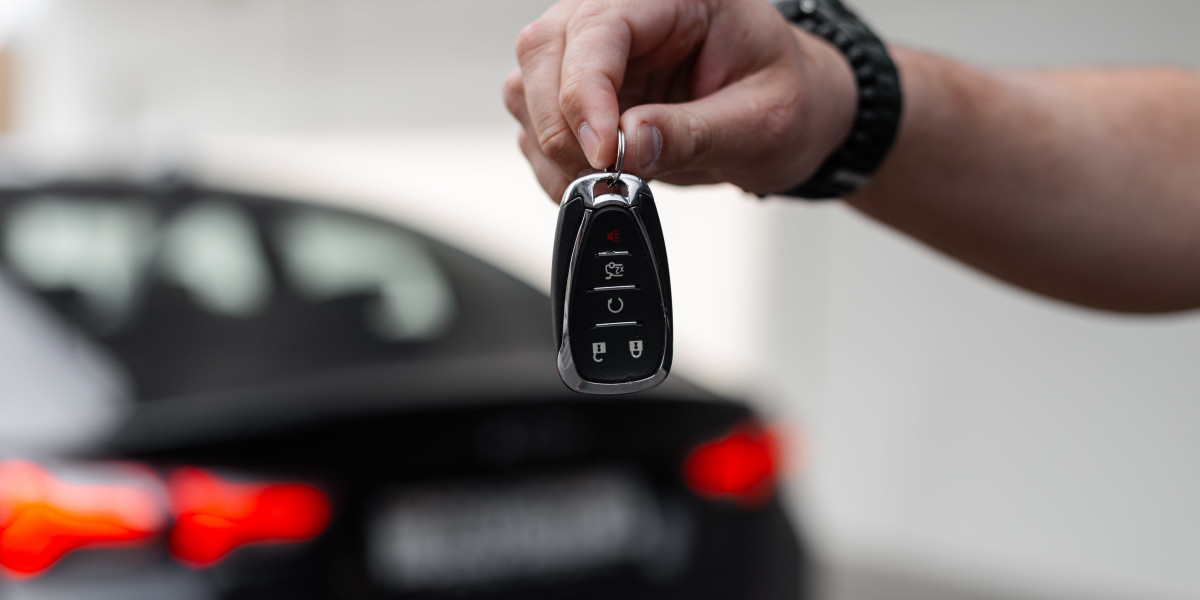
Auto Car Key Replacement: A Comprehensive Guide
Car keys are important elements of vehicle ownership. They make sure the security of the vehicle and assist in easy access for licensed users. However, losing or harming car keys can be a frustrating experience. Comprehending the procedure of auto car key replacement can help car owners browse this unforeseen situation efficiently. This article looks into the types of car keys, the replacement process, costs involved, and frequently asked questions to provide readers a well-rounded understanding of auto car key replacement.

Understanding Car Keys
Car keys can be found in numerous forms, each created for specific security standards and innovations. The most common types consist of:
- Traditional Metal Keys: The basic keys used for older models, frequently quickly duplicated.
- Transponder Keys: Equipped with a little chip that communicates with the car's ignition system, these keys enhance security by avoiding unapproved use.
- Remote Key Fobs: These permit keyless entry and, in some cases, engine start. They usually feature a transponder chip.
- Smart Keys: A more advanced type of key that makes it possible for keyless entry and ignition. The owner can start the vehicle while still in their pocket or bag.
- Keyless Entry Systems: Activated through distance sensors, allowing the driver to unlock and start the vehicle without physically utilizing a key.
Table 1: Types of Car Keys
| Type of Key | Description | Security Level |
|---|---|---|
| Conventional Metal Key | A fundamental key for unlocking and beginning older vehicles | Low |
| Transponder Key | Consists of a chip for electronic interaction | Medium |
| Remote Key Fob | Permits keyless entry and may include remote start | High |
| Smart Key | Offers keyless entry and performance with distance | Extremely High |
| Keyless Entry System | Opens and begins vehicle automatically | Extremely High |
The Auto Car Key Replacement Process
When confronted with a lost or harmed car key, comprehending the replacement process is crucial. Here are the actions included:
1. Assess the Situation
Before taking any action, confirm whether the key is really lost or damaged. Inspect for spare keys or other potential hiding spots within the vehicle or home.
2. Collect Necessary Information
Once it's confirmed that the key is indeed missing or broken, gather essential information about the vehicle. This details normally consists of:
- Make and design of the vehicle
- Year of manufacture
- Vehicle Identification Number (VIN)
- Proof of ownership (vehicle title, registration, or insurance)
3. Pick a Replacement Method
Car owners have numerous options for replacing lost or broken keys. The finest choice typically depends on the kind of key involved:
- Dealership: The dealership can develop a new key based on the VIN, which is a safe and secure method to ensure you get a key that works with your vehicle.
- Locksmith: A competent automotive locksmith can be more affordable and hassle-free, especially for transponder keys or clever keys.
- DIY Key Replacement Kits: Available at automotive stores, these packages might appropriate for traditional keys, but caution is recommended for contemporary keys.
4. Get a New Key
When the chosen option has been picked, the next action involves either going to the car dealership or locksmith to have the new key produced. Ensure the car is present if it's required for shows functions.
5. Program the New Key
Depending upon the type of key, shows might be necessary. This ensures that the new key is acknowledged by the vehicle's ignition system. Dealers and locksmith professionals normally have actually the tools needed for this.
6. Check the Key
After programming, test the key to guarantee it operates in both the ignition and locks.
7. Consider Additional Security
If a key is lost, it might present a security threat. In such cases, think about reprogramming the vehicle's locks or the transponder system to prevent potential theft.
Cost of Auto Key Replacement
The cost of changing a car key varies significantly based on numerous elements, consisting of vehicle make and design, and the method utilized for replacement. Here is a basic expense breakdown:
| Replacement Method | Average Cost Range |
|---|---|
| Dealership | ₤ 150 - ₤ 500 |
| Automotive Locksmith | ₤ 100 - ₤ 300 |
| DIY Key Replacement Kit | ₤ 10 - ₤ 50 |
Frequently Asked Questions About Auto Car Key Replacement
Q1: Can I replace my car key myself?
A1: Depending on the type of key, you can use DIY kits for standard metal keys. Nevertheless, contemporary keys frequently require professional programming.
Q2: How long does it take to get a replacement key?
A2: The procedure can take as low as 30 minutes for locksmith professionals however may take longer at dealers, especially if special buying is required.
Q3: What if I lose my only car key?
A3: If the only key is lost, you may require to have your vehicle hauled to a locksmith or dealer for a replacement vehicle keys (http://101.132.172.242:3000/Replacementcarkeys3964).
Q4: Is it cheaper to get a key made at a car dealership or locksmith?
A4: Generally, locksmith professionals can provide a more economical solution, especially for non-high-security keys.
Q5: What can I do to avoid losing my car keys in the future?
A5: Consider using key finders, key hooks, or designated spots in your home or car for simple gain access to.
Efficient auto car key replacement is a vital aspect of vehicle ownership. Understanding the kinds of keys, the replacement process, and the associated expenses can help car owners make notified decisions when confronted with lost or damaged keys. By being proactive, people can decrease the inconvenience and prospective expenses connected with key replacement.








